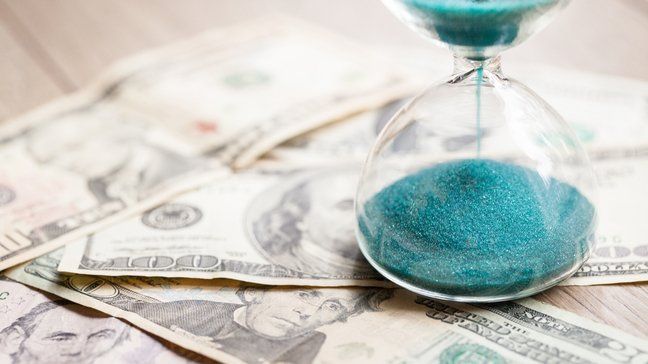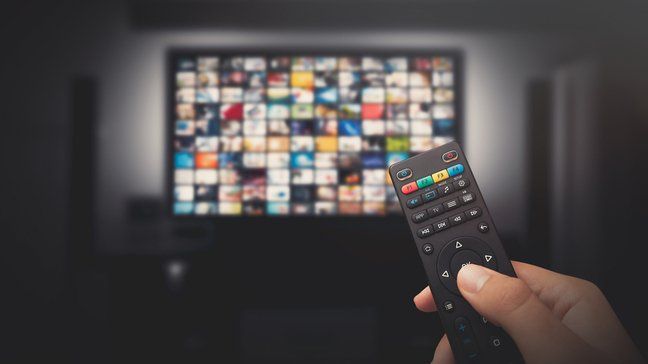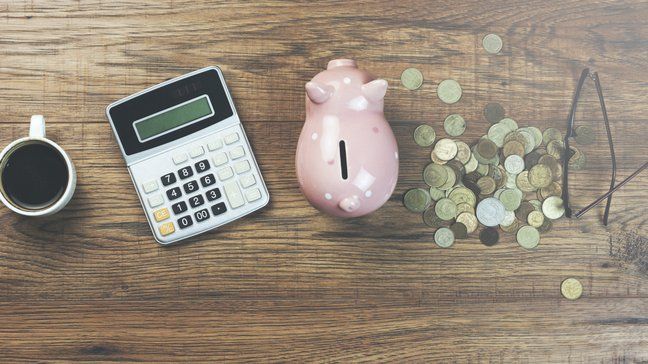It can be tough to get a good handle on your finances, especially when you’re first starting out in your career or just don’t have a lot of cash to spare. Throw in student loan debt, record inflation, and growing economic uncertainty, and it can seem especially daunting to get your financial situation on the right track.
Luckily, there are a few bad money habits that you can break that will make getting your finances in order easier. While there are many aspects of your financial situation that you can’t control, getting rid of bad money habits and forming new, responsible habits when it comes to spending and borrowing can set you up for success.
What’s Ahead:
- 1. Spending more than you earn
- 2. Not sticking to a budget
- 3. Not educating yourself about personal finance
- 4. Not building up an emergency fund
- 5. Not saving for retirement
- 6. Carrying credit card debt and making late payments
- 7. Spending too much on groceries
- 8. Buying everything new
- 9. Not buying insurance
- 10. Subscription bloat
- 11. Lifestyle inflation
- 12. Not having a career plan
- 13. Not setting financial goals
- 14. Not setting personal goals
- 15. Not investigating all your options when it comes to financial products
- 16. Not being active in your community
- Summary
1. Spending more than you earn

How much you spend vs. how much you earn is one of the key factors that can make or break your financial health. You should always aim to spend less than you make each month, with the goal of saving 20% of your income each month.
While this sounds simple enough, life can get in the way sometimes, whether you have a couple of unexpected expenses that tank your budget, you lose a source of income, or you just don’t quite make enough to meet your basic needs each month. Even if you find yourself unable to spend less than you make right now, earning more money than you spend should always be your ultimate goal when it comes to setting your finances in order.
On the other side of the equation, you should also steer clear of unnecessary expenses. This doesn’t mean you can’t treat yourself every once in a while, but it does mean you should make it work within your budget.
2. Not sticking to a budget
Knowing how you like to spend money is the key to your financial success. The easiest way to control your spending habits is to make (and stick to) a budget.
You should include necessities like housing, utilities, groceries, and insurance, and may want to add categories for saving and discretionary “fun” spending each month if your budget allows.
After you set a budget, the next step is to track your spending each month to make sure that you’re sticking to it. Tracking spending can help you to make sure that you’re not going over budget in any one area. It also helps you to keep track of your finances and get a clear-eyed view of what you spend your hard-earned money on.
Related: How to make a budget – Step by step guide to managing your money
3. Not educating yourself about personal finance

The world of personal finance can be full of jargon and terms that are confusing for beginners. I had never studied business or accounting and found many financial terms frustratingly opaque when I first started to learn more about personal finance.
Unfortunately, poor financial literacy can have negative consequences when it comes to your financial wellbeing. Knowing enough about personal finance to make responsible and educated decisions when it comes to money is really important. Luckily, there are plenty of free resources online (including the articles here at Money Under 30!) to get you started.
4. Not building up an emergency fund
A sizable safety net is another cornerstone of good financial health. After you’ve set a budget and begun to track your spending each month, you should start to put money away in a savings account each month towards an emergency fund.
Most financial experts recommend that you save between three and six months worth of expenses in an emergency fund. If you’re not sure exactly how much to save, you can use MU30’s emergency fund calculator to figure it out.
Related: Building an emergency fund – Why, how, and where to keep it
5. Not saving for retirement
Once you’ve established a budget and stashed away some money for an emergency fund, the next step on your path to financial wellness should be to start saving for retirement. This is especially important if your employer matches retirement contributions since you’re basically leaving free money on the table if you don’t contribute up to their match limit.
If your employer doesn’t offer any retirement savings options, you can contribute to a traditional or Roth IRA (the contribution limit is $6,500 in 2023.) Once you’ve maxed out your retirement contributions for the year, you can save or invest any additional cash that’s leftover.
If you’re not sure how much you should be saving, MU30’s investment calculator can help you plan your savings goals.
Related: Beginner’s guide to saving for retirement
6. Carrying credit card debt and making late payments

I’ve certainly been there – when you’re not making enough to make ends meet and need to pay your bills each month, it can be tempting to put extra expenses on a credit card.
While credit cards provide welcome flexibility and rewards redemption opportunities, they can quickly turn into a major debt burden if you’re not careful. If it’s at all within your means, you should try to pay off your balance in full each month to avoid accumulating interest and building up debt.
If you already have credit card debt start working a debt snowball to help pay it off.
Late payments on bills often come with additional late fees and interest charges, and a history of late or missed payments can lower your credit score.
Mistakes happen and if if the payment was late due to an oversight see call and see if you can get the late payment fee removed. However, if you are consistently late – or late because you simply didn’t have the money to pay the credit card bill then that is a sign of financial trouble.
Related: Snowball vs Avalanche – Which debt payoff method is best
7. Spending too much on groceries
Groceries are definitely one of the biggest weaknesses in my budget! It’s so easy to spend more than you mean to at the grocery store, especially if you love to cook and eat delicious food.
If cooking at home and eating well is important to you, it’s okay to budget a little extra in the grocery department. But you should try your best to reign it in and stick to a reasonable monthly goal when possible. I’ve found it also helps to plan meals in advance, shop at bulk stores like Costco, and invest in shelf-stable staples like rice and lentils to stretch my budget even further.
Related: 23 ways to save money on groceries
8. Buying everything new
If you’re trying to save money and get your finances under control, buying everything new can siphon off hundreds of dollars in savings each year. No matter what you’re looking to buy, from cars to clothing and everything in between, there are probably cheaper gently used options.
I love trawling Craigslist, yard sales, and thrift stores for hidden gems! While you probably won’t be able to find absolutely everything you need, it’s still a good idea to check out your options before you buy any brand new items at the sticker price.
Also, aim to repair items before you replace them. It’s surprising how sometimes a $10 fix will make a broken item last another few years. If you can build the skills to start fixing items yourself you’ll save untold amounts of money over your lifetime.
Related: 7 Goodwill hacks that will save you hundreds
9. Not buying insurance

When your budget is already tight, it can be tempting to forgo insurance in favor of making ends meet. But going without insurance can put you in an even worse financial situation when you need help the most.
If you’re able to, you should invest in insurance including health insurance, home or renters insurance, and auto insurance to make sure that you’re covered in the event of an emergency.
Related: Insurance 101 – 10 types of insurance everyone under 30 should understand
10. Subscription bloat

Subscription services have proliferated in recent years, for everything from TV channels to cute underwear. It’s easy to sign up for a subscription and forget about it, especially if it only costs a few dollars a month. But they can really add up over time.
One way to cut down on subscriptions is to survey your bank statement at the end of each month and evaluate which subscription charges are truly worth it.
If you don’t want to take the time to do this yourself, you can set up an account with Trim, a service dedicated to helping you clear out your unused subscriptions. They’ll even negotiate your bills for you on your behalf!
Related: Use Trim and Truebill to cut out costly subscriptions you don’t use
11. Lifestyle inflation
I recently read that “lifestyle inflation is when a treat becomes a habit” and that has really stuck with me.
Whether you just got a pay raise or started a lucrative side hustle, it can feel incredibly freeing to have a little extra cash left over at the end of each month. While it’s tempting to treat yourself and celebrate your new success, you shouldn’t let lifestyle inflation eat into your budget. By living within your means and socking away any additional money you earn into savings and investments, you can set yourself up to achieve financial freedom.
Related: Lifestyle creep – What it is and how to avoid it
12. Not having a career plan
While reducing your expenses, saving, and investing are all good strategies toward sound financial health, one of the most effective ways to jumpstart your finances is to earn more money. This isn’t always as difficult as it sounds!
By planning out your career path, you can work toward earning more in the future. If you think you’re not being compensated enough at your current job, you might want to consider asking for a raise or applying to better-compensated positions at other companies.
Networking with people who can help you achieve your career goals is critical and takes a lot of time. It’s better to start networking now, before you need these contacts. That way you can build natural relationships with people before you ask for a favor.
Related: Careers with the best starting salaries
13. Not setting financial goals

Earning, budgeting, and saving money is a lot easier to do if you have concrete goals in mind. Whether your goal is to be debt-free, save up for a major expense like a new car or a wedding ring, buy a house, or even retire early, setting financial goals can motivate you to break bad spending habits and create new, healthy habits that help you achieve your dreams.
Personally, I’m saving up for a little house in the countryside with a big vegetable garden and a little chicken coop.
14. Not setting personal goals
Financial goals are usually pretty tightly interwoven with personal goals. Maybe your personal goal is to work part-time and spend more time with family, or maybe you dream of saving up money to travel the world.
Maybe you’re happy making less money at a job that you believe in and that makes the world a better place, or maybe you prefer a low-stress job with decent pay that allows you to devote time to creative projects. It’s a good idea to get a firm sense of your personal goals so that you can then use them to inform your professional and financial goals.
15. Not investigating all your options when it comes to financial products
It can be easy to go with the path of least resistance when it comes to personal finance products like checking accounts, credit cards, and loans. Whether you get a recommendation from a family member or friend, get a flyer in the mail, or see an ad online, you may be tempted to go with the first available option.
Resist that temptation – you should always compare different financial products in order to ensure you’re getting the best deals. Finding financial products that fit your needs and lifestyle can be an easy way to give your finances a boost.
This allows you to avoid fees and earn rewards you’ll actually use.
16. Not being active in your community
Personal finance doesn’t take place in a vacuum, and there are plenty of factors outside our control when it comes to making and saving money. If there’s a cause you care about that has an impact on personal finance, like equitable worker compensation, universal healthcare, predatory lending, or other issues, you should consider getting involved.
While one person might not be able to change these big issues alone, many people working together can have a positive impact that stretches far beyond your own bank account.
Summary
Working on your career so you can earn more money while also watching your spending habits can make a huge impact on your finances over time.
The flip side to breaking bad habits is forming better spending habits in their place. This can be especially hard if you’re struggling financially, but every little step you take in the present will pay off dividends in the future.


